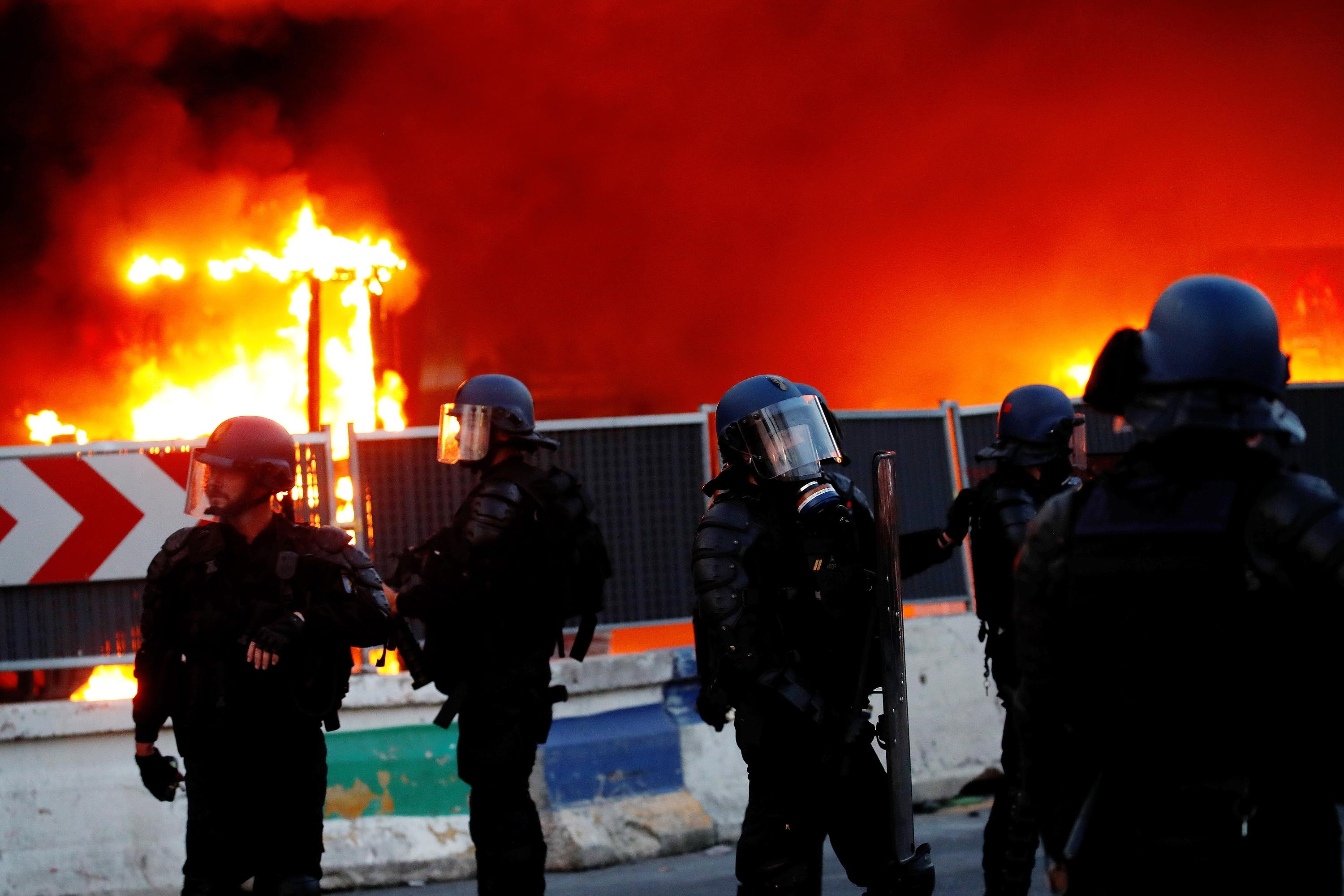In the past ten years, the energy industry in Germany has roughly doubled the share of renewable energies in the power supply and has ensured that all consumers are reliably available via the electricity grid. At the same time, more than 75,000 public charging stations and several hundred thousand wall boxes were connected to the grid, which now supply around one million e-cars with electricity. Despite these new challenges, Germany is still one of the world leaders in terms of security of supply.
With a view to the expansion of renewable energies and the turnaround in transport and heating, a new dynamic is now emerging for the energy networks: Within just seven years, renewable energies should guarantee 80 percent of our electricity supply, from just under 50 percent today. By 2030, 15 million electric cars are expected to be driving on German roads, and heat pumps are increasingly being installed in homes.
This means that within a few years, the grids will absorb significantly more wind power and photovoltaics and serve significantly more new consumer devices such as e-cars or heat pumps. For the networks, this means: expansion and digitization.
There is no question that this is a mammoth task! But it is important because the power grid is the infrastructure of our modern industrial society. And for many customers, this further development enables them to actively participate in the energy transition themselves via their own wall box or heat pump.
With a sharp increase in the number of e-cars and heat pumps, there will be local hotspots in the network in some streets in the future, where a particularly large number of new systems will have to be connected to the network. The grid expansion will not be able to keep up with the connection demand everywhere at the same time.
Network operators cannot know in advance who will buy an e-car in their network area, when charging will usually take place or how many additional heat pumps will be installed in the district. Nevertheless, an immediate connection and ensuring the quality of supply is a core responsibility of the network operator. They are aware of their responsibility and work with great commitment and technical know-how to ensure a reliable power supply at all times.
However, at this point it is important to find a solution: integrate everyone into the electricity system as quickly as possible, although the grid expansion required for this will take more time.
For this purpose, the Federal Network Agency has presented a solution that makes sense for everyone involved: To prevent the grid from being overloaded at certain points, it should be possible to dim the electricity supply for a short period of time. The basic requirement is always an acute threat or disruption to network security.
For households, this means that the car would be charged a little more slowly during this period - not or hardly noticeable for the users. In return, the households covered by this regulation receive financial compensation. This instrument will be very helpful for all those involved in the coming years.
However, the Bundesnetzagentur's approach has also raised questions. So there is concern that consumers will not be supplied with electricity at certain times. To put it bluntly, this is a wives tale.
Three points on this:
First: It is about a short-term dimming of the electricity supply at a defined point, such as the wall box. The e-car can charge less quickly for a certain period of time, but it continues to charge. The household itself remains unaffected: the refrigerator, washing machine and Internet continue to run as before. This ensures that the power supply – including that of the neighbors – is guaranteed at all times.
Secondly, the regulation does not apply equally to all households. It is only limited to households that have installed a wall box or a heat pump. Similar regulations are already being used successfully for special heat pump tariffs.
Third: The top priority is still the network expansion. The possibility of short-term dimming is an ultima ratio measure until the network is adapted to the new demand. The selective control does not replace the grid expansion, but ensures the security of supply in the short term. Nobody has to worry about being permanently dimmed.
It is true that there will be further development as new products are created, such as new variable tariffs, which can help to balance the energy system. In order to be able to offer such products in households, however, the networks must become more digital. We work on that every day.
It is about the use of intelligent measuring systems - smart meters - and control technology at the customers. But the grid itself must also be equipped with additional control and measurement technology.
This digitization still needs time. Competitive contributions to grid stability - for example via Section 14c of the Energy Industry Act - are important developments with regard to wall boxes and heat pumps, but are not yet technically feasible today. So it's a matter of timing.
In addition, network security cannot be guaranteed with competitive incentives alone. At the same time, grid expansion and ultima ratio control by the grid operator will continue to ensure the usual high security of supply.
Our society is on the way to a new, climate-neutral world in which some things will be regulated differently than we are used to. It is understandable that this also causes concern. But there is one very reliable constant on this path: the obligation and the drive of the grid operators to supply all customers with electricity safely and reliably at all times remain the same. That's something you can rely on.
On the road ahead, the Bundesnetzagentur's proposal is not part of the problem. On the contrary: it is an important step on the way to a solution for all consumers.
The author Kerstin Andreae is a former politician (Bündnis 90/Die Grünen). Since 2019 she has been Chair of the Executive Board and a member of the Executive Committee of the Federal Association of Energy and Water Industries (BDEW).
"Everything on shares" is the daily stock exchange shot from the WELT business editorial team. Every morning from 7 a.m. with the financial journalists from WELT. For stock market experts and beginners. Subscribe to the podcast on Spotify, Apple Podcast, Amazon Music and Deezer. Or directly via RSS feed.

 What is chloropicrin, the chemical agent that Washington accuses Moscow of using in Ukraine?
What is chloropicrin, the chemical agent that Washington accuses Moscow of using in Ukraine? Poland, big winner of European enlargement
Poland, big winner of European enlargement In Israel, step-by-step negotiations for a ceasefire in the Gaza Strip
In Israel, step-by-step negotiations for a ceasefire in the Gaza Strip BBVA ADRs fall almost 2% on Wall Street
BBVA ADRs fall almost 2% on Wall Street Children born thanks to PMA do not have more cancers than others
Children born thanks to PMA do not have more cancers than others Breast cancer: less than one in two French women follow screening recommendations
Breast cancer: less than one in two French women follow screening recommendations “Dazzling” symptoms, 5,000 deaths per year, non-existent vaccine... What is Lassa fever, a case of which has been identified in Île-de-France?
“Dazzling” symptoms, 5,000 deaths per year, non-existent vaccine... What is Lassa fever, a case of which has been identified in Île-de-France? Sánchez cancels his agenda and considers resigning: "I need to stop and reflect"
Sánchez cancels his agenda and considers resigning: "I need to stop and reflect" “Amazon product tester”: the gendarmerie warns of this new kind of scam
“Amazon product tester”: the gendarmerie warns of this new kind of scam “Unjustified allegations”, “promotion of illicit products”… Half of the influencers controlled in 2023 caught by fraud repression
“Unjustified allegations”, “promotion of illicit products”… Half of the influencers controlled in 2023 caught by fraud repression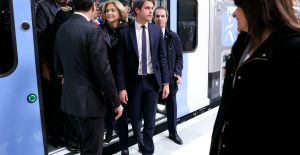 Extension of the RER E: Gabriel Attal welcomes a “popular” ecology project
Extension of the RER E: Gabriel Attal welcomes a “popular” ecology project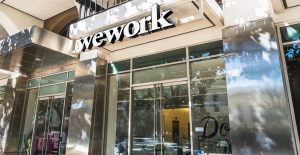 WeWork will close 8 of its 20 shared offices in France
WeWork will close 8 of its 20 shared offices in France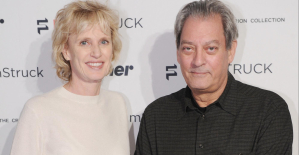 “We were robbed of this dignity”: Paul Auster’s wife denounces the betrayal of a family friend
“We were robbed of this dignity”: Paul Auster’s wife denounces the betrayal of a family friend A masterclass for parents to fill in their gaps before Taylor Swift concerts
A masterclass for parents to fill in their gaps before Taylor Swift concerts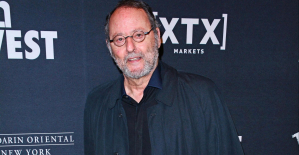 Jean Reno publishes his first novel Emma on May 16
Jean Reno publishes his first novel Emma on May 16 Cannes Film Festival: Meryl Streep awarded an honorary Palme d’Or
Cannes Film Festival: Meryl Streep awarded an honorary Palme d’Or Omoda 7, another Chinese car that could be manufactured in Spain
Omoda 7, another Chinese car that could be manufactured in Spain BYD chooses CA Auto Bank as financial partner in Spain
BYD chooses CA Auto Bank as financial partner in Spain Tesla and Baidu sign key agreement to boost development of autonomous driving
Tesla and Baidu sign key agreement to boost development of autonomous driving Skoda Kodiaq 2024: a 'beast' plug-in hybrid SUV
Skoda Kodiaq 2024: a 'beast' plug-in hybrid SUV The home mortgage firm rises 3.8% in February and the average interest moderates to 3.33%
The home mortgage firm rises 3.8% in February and the average interest moderates to 3.33% This is how housing prices have changed in Spain in the last decade
This is how housing prices have changed in Spain in the last decade The home mortgage firm drops 10% in January and interest soars to 3.46%
The home mortgage firm drops 10% in January and interest soars to 3.46% The jewel of the Rocío de Nagüeles urbanization: a dream villa in Marbella
The jewel of the Rocío de Nagüeles urbanization: a dream villa in Marbella Europeans: a senior official on the National Rally list
Europeans: a senior official on the National Rally list Blockade of Sciences Po: the right denounces a “drift”, the government charges the rebels
Blockade of Sciences Po: the right denounces a “drift”, the government charges the rebels Even on a mission for NATO, the Charles-de-Gaulle remains under French control, Lecornu responds to Mélenchon
Even on a mission for NATO, the Charles-de-Gaulle remains under French control, Lecornu responds to Mélenchon “Deadly Europe”, “economic decline”, immigration… What to remember from Emmanuel Macron’s speech at the Sorbonne
“Deadly Europe”, “economic decline”, immigration… What to remember from Emmanuel Macron’s speech at the Sorbonne These French cities that will boycott the World Cup in Qatar
These French cities that will boycott the World Cup in Qatar Champions Cup: Toulouse with Flament and Kinghorn against Harlequins, Ramos replacing
Champions Cup: Toulouse with Flament and Kinghorn against Harlequins, Ramos replacing Tennis: still injured in the arm, Alcaraz withdraws from the Masters 1000 in Rome
Tennis: still injured in the arm, Alcaraz withdraws from the Masters 1000 in Rome Sailing: “Like a house that threatens to collapse”, Clarisse Crémer exhausted and in tears aboard her damaged boat
Sailing: “Like a house that threatens to collapse”, Clarisse Crémer exhausted and in tears aboard her damaged boat NBA: Patrick Beverley loses his temper and throws balls at Pacers fans
NBA: Patrick Beverley loses his temper and throws balls at Pacers fans






